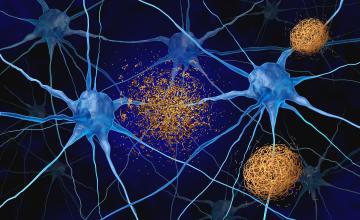Innovation without borders, partnerships without limits
Substantial research and development (R&D) investment enables our global teams to innovate and develop next-generation diagnostic content – from ultra-sensitive detection technologies to breakthrough biomarkers for a wide range of conditions.
We also prove our innovations in practice on our own robust Lumipulse® platform, giving Contract Development & Manufacturing Organization (CDMO) partners confidence in real-world performance. As an example, our FDA-cleared biomarkers have helped make blood-based Alzheimer's disease diagnosis a reality, while our expanding neurological pipeline also covers related diseases such as multiple sclerosis (MS), Parkinson's disease, and amyotrophic lateral sclerosis (ALS).
Most importantly, we share our innovative solutions with other technology providers through open partnerships, providing everything from diagnostic raw materials and reagents to complete development, manufacturing, and clinical and regulatory services. This collaboration creates exponential impact, multiplying our breakthroughs across diagnostic platforms, and reaching millions more patients than we could serve alone.
We reinvest revenues from these partnerships into further R&D to continuously fuel our innovation engine.








